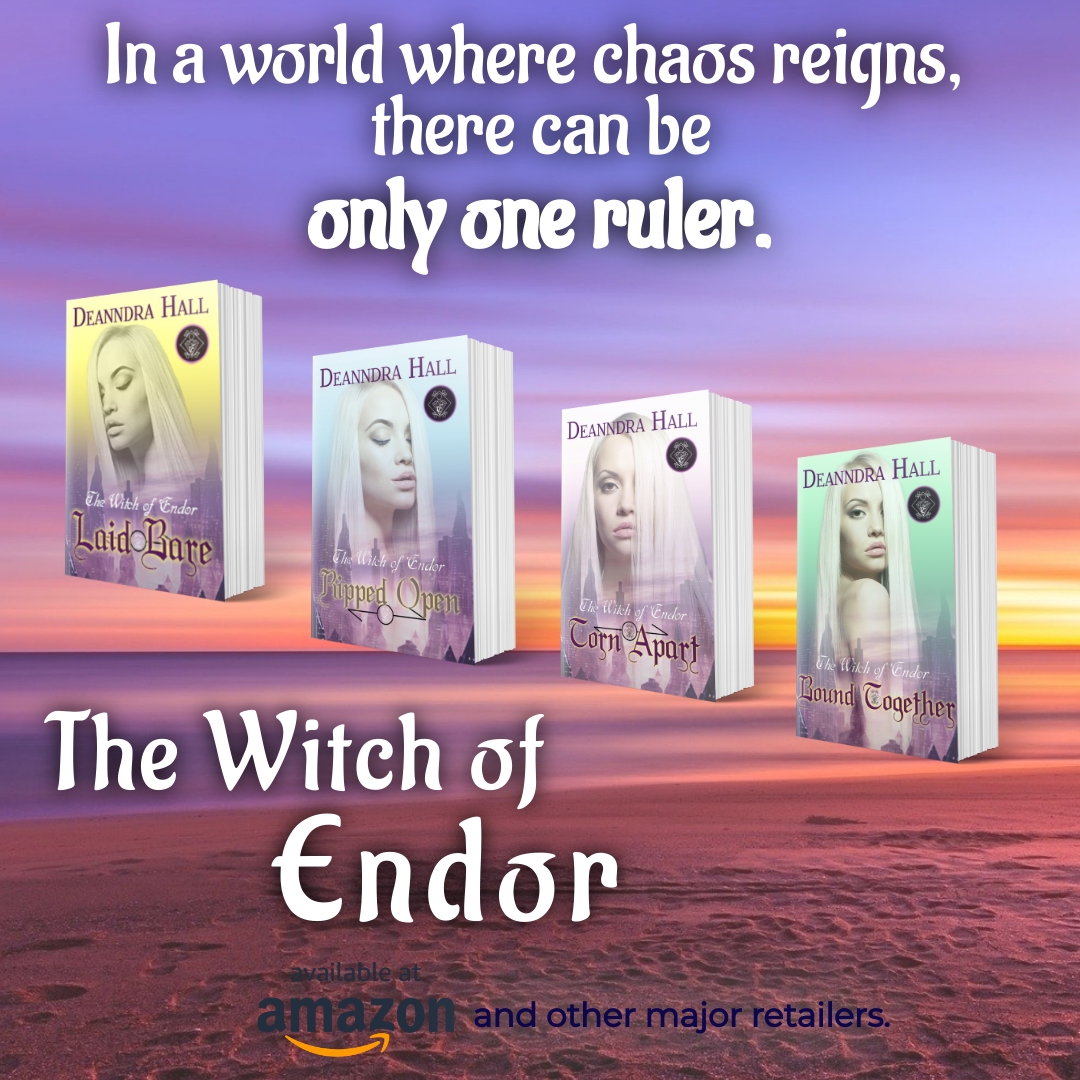As fiction authors, we are graced with a gift that non-fiction authors don’t have. It’s called suspension of belief. As part of artistic license, suspension of belief is the lifeblood of paranormal writing. Without it, Game of Thrones would have no dragons, the Harry Potter series would be without Dobby, and The Hunger Games couldn’t exist. Other genres, like creative historical fiction, employ it as well, as in Bernard Cornwell’s Saxon Tales series, which is the basis for the television series The Last Kingdom. Real historical figure? Yes. Real history? No.
Suspension of belief requires the reader to suspend what they know as fact in order to slip into a new “reality” created by the book. That leaves the responsibility of crafting a believable alternate reality up to the author, and it’s a heavy burden, depending on the genre.
I’ve been on both ends of the spectrum. With most of my work, I’ve been in a realm that’s wholly familiar where characters are older, at least over thirty-five and some much older than that, their lives consumed with the search for a meaningful relationship. For them, suspension of belief comes in the form of obstacles thrown into their path, around, over, or through which they must navigate in order to get to the prize in the form of the sought-after relationship that will make their lives complete.

But with the science fiction/urban fantasy series I completed a few months ago, suspension of belief is something entirely different. Not only are these characters looking for that one-in-a-million person to share their life with, but there’s more than meets the eye when they come along. My heroine in that series is fifty-five million years old—in Earth years, that is. Having been shoved through a portal from another dimension, she manages to survive, primarily because she refuses to have sex with a human. Curious about that? It’s actually one of the driving themes of the entire series, revealed in the first book and resolved in the last.
A series like that is totally different from others in that a whole world is being built for these characters, a world unlike any other, and it’s designed to be unique. Suspension of belief comes into play in a huge way within works such as this, primarily because other dimensions don’t exist.
Or do they? That’s the question that suspension of belief asks us to answer in order to enjoy the reading experience in that particular series and in any other paranormal, sci-fi, or urban fantasy series. The same goes for billionaire, secret baby, and suspense tropes. In order to do that, there are some criteria that must be met by the author. Some are simple, and some are complex. And in almost every respect, I’ve found a handful of authors who’ve failed miserably. For many, it’s just their general inability to write (hate to say it, but it’s true). For others, it’s a misstep, and for some of those, the missteps are more serious than others. Maintaining suspension of belief can be hard, but it doesn’t have to be. How do authors succeed at suspension of belief? There are many ways, but here are the three I’ve found to be most common. Do these and you’re off to a good start.

They think it through.
I got a message from my assistant one evening about a book that had just been released, and she had an unusual question: “Can that actually happen?” No, she wasn’t talking about dragons, or invisibility, or shapeshifting.
She was talking about a sex position.
After she described it to me, she pointed out in the book where the scene took place, so I went to have a look for myself. I read it, and then I read it again, and I came to some startling conclusions. The first was that the male character would’ve needed legs about seven feet long to perform that act, or that the vehicle (don’t ask) would’ve needed to be about two feet tall. And that particular vehicle is anything but. Well, now, that’s awkward, isn’t it? Second, even if those criteria were met, the female character still wasn’t in the right, um, contortion, for lack of a better word, that would allow the scene to take place as written. Third, if that vehicle hadn’t been sitting long enough to cool off, somebody would definitely get their dangly bits scorched with that act. No doubt about it.
What made it worse, at least to me, was the fact that this came through a traditional publishing house. That left me wondering what their editor had been doing the day he or she read through that, because they sure weren’t paying any attention. Something had to be amiss. My assistant doesn’t claim in any way to be an editor, and she caught it. A literary faux pas such as this is death to suspension of belief. It yanks the reader out of the story as they sit and ponder the mechanics of whatever they were reading.

Going too far can be the last straw. Yes, characters should be memorable. But making a character survive a car driven off a two hundred foot bluff isn’t going to work. Having a character who’s never held a gun suddenly become a sharpshooter for a militia group can’t be explained away by suspension of belief. Sensational is one thing; impossible is another. Know the difference.
I think the greatest—and weirdest—compliment I’ve ever heard on an author’s work was in regard to Stephenie Meyer’s Twilight saga when a dewy-eyed young relative turned to me and asked, “I know they’re not real, but don’t you think maybe vampires could be real? I mean, really? They could be, right?” In that moment, I was in awe of Meyer’s writing abilities. The intellect of my young relative? Uh, not so much. But think about it. The story was about an unimpressive young woman dropped into an unimpressive town where she meets an unlikely love interest. There was very little sensationalism there, at least in the first installment. It was the realism that caught the reader and made the story that much more sensational.
Keys to success: Picturing things in your mind isn’t always the most efficient way to make sure suspension of belief is realized. Sometimes, as a particular author I know said on national television, you’ve got to use a few fashion dolls to see if something works. She even admitted to breaking a few. Better breaking dolls than destroying the storyline. Can a plane really fly that high? Can a bomb made of that quantity of explosive really take out an entire city block? Can a bear that size actually maul a buffalo to death? Suspension of belief is about allowing the reader to believe the premise of the story or at least the scene. Grossly exaggerating something just to make it sensational means it won’t be. It will just be silly. So think it through thoroughly.

They became a cartographer.
If you want your suspension of belief to work, you’ve got to keep track of everything. J.K. Rowling did a great job of this over the course of all seven of the Harry Potter volumes. Although she added some new elements into each book, such as powers previously unknown or characters previously unseen, she never abandoned the earlier information. In essence, she became her own cartographer.
For each series, there is a map (some authors call it a bible). It may be unseen or never formally written down, but it’s there, regardless. It can be as simple as a shared theme, perhaps a futuristic sci-fi kind of setting, or linked in such a way that no one book can exist without another. There are things that go into and onto the map that keep the story from running off the rails.
- Names of characters, their physical descriptions, ages, phobias, likes and dislikes, anything that defines them, needs to go into the map. Is he an alcoholic? Is she a hoarder? Details such as these add depth to characters.
- Special characteristics such as walking with a limp or a cane, the ability to make themselves invisible, or having one green eye and one blue. If it’s something that sets them apart, it should be noted. In the case of my urban fantasy series, she lives in Atlanta, and she speaks as a southern of the United States. She also knew countless historical figures, and they crop up from time to time. I couldn’t afford to forget any of them. She also has the ability to start fires by directing energy at combustibles. That’s a handy ability to have, and one I didn’t want to forget about. Plus she has lavender eyes that darken when she’s angry or excited.
- Education, either formal or vocational, is important. Certified? Bachelor’s degree? On-the-job? Courtesy of the U.S. military? That establishes them either as authorities or as knowing nothing about a particular field. Did they go to public schools? A parochial school? A private school? I have a character who is Italian and Catholic. He was educated in parochial elementary schools, but he sent his children to a small private school because his son has a learning disability. My urban fantasy heroine, however, bluffed her way into an architectural firm and faked a diploma, depending only on her inborn intellect to guide her. Her love interest is a human heating and cooling guy who has a secret about his education as well. Those layers form some complex characters.
- Locations are important. Hometowns, places they’ve lived or were stationed with the military, dimensions they’d visited, or regions of the sea where a mermaid has lived can play their own role. All of those are things that make someone who they are and lend an authenticity to them and their personality. A fifty-five million year old extra-dimensional character who lives and works in Atlanta. A son of Italian aristocracy who runs a construction firm in Louisville, Kentucky. A young sporting goods entrepreneur from Alabama who joins a BDSM club in Seattle, Washington. Make note and good use of points of interest, from lakes and rivers to municipal buildings and houses of worship. Nowhere is “location, location, location” more important than in suspension of belief.

There are these and so much more. I actually have character dossiers I fill out to help me keep track. Once I’m into a series and I’ve got twenty or more characters interacting, those dossiers become more important than ever.
Keys to success: Start from the very first line. Maybe it’s a notebook. Maybe you want to set up a table in Excel or Sheets. Maybe you want to fill out an “application” of sorts for each character. Maybe you want to find pictures that represent your characters and use those as reminders, or actual maps that keep you in the moment. But whatever you do, don’t set their home in Dallas only to say they return home to Houston. I might not notice, but you can bet a Texan would.

They write what they know and know what they write.
I’d like to say that the beauty of writing fiction is that it’s lean on research, but that wouldn’t be accurate. Fortunately, there are many things we no longer have to experience in this age of online research. I remember spending hours at the university library, sitting in the stacks, making notes and copies of pages. Now we can use online mapping programs with street view and see the locations where we want our stories set. There are a lot of ways to maintain suspension of belief and make your story memorable.
Some things, however, can’t be faked. A great example is military romance. I’m not going to lie—I know nothing about military life. Nothing. My husband was a U.S. Navy brat, but that’s not the same thing as serving. He’s helped me on a few points, like my character who was a naval explosive ordnance disposal technician, but I had to learn on my own that yes, she would’ve likely been in Bosnia during the peacekeeping mission, and yes, she likely would’ve been the only naval person in an army installation, and yes, she was almost positively the only female in that situation. That took some digging.
So did finding out how to make a pop bottle bomb. Unfortunately, during the time I was researching it, some turned up in mailboxes around our area, which was precisely what happened in my book. I found myself researching through a proxy server for fear the sheriff’s department would find out about my searches and think I’d done it! I wasn’t sure I could suspend their belief on that one.

Worse yet was the BDSM craze following the Fifty Shades franchise. Everybody and their so-called submissive tried to write in a similar vein. Unfortunately, not only were some incorrect, but a good many were downright dangerous to anyone who was clueless enough to try what was written in their pages. Trying breath play (also known as erotic asphyxiation) after reading it as written by someone who has no knowledge of it is like taking skydiving lessons from a toddler. You might survive it, but do you really want to take that chance?
The one thing I’ve heard most are complaints from readers who love military romance. Most often, the complaints are in regard to incorrect ranks and how officers and enlisted personnel would interact. I’ve also seen some books where a skilled surgeon was also the owner of a Fortune 500 company, and also a fighter pilot, and also a movie producer, and … Any one of those vocations would be so involved that being able to hold more than one position would be impossible. If you don’t understand that a neurosurgeon is going to work at least one hundred or more hours per week as a general rule, you obviously don’t know a surgeon. Jobs are complex and stressful. Know what they are and how they work.
If that kind of research is out of your element, then I’ll suggest something that I was told all my life: Write what you know. There’s no shame in that. Vocations aren’t what make characters interesting, after all. Instead, it’s their interactions with each other that tell the story. But don’t embarrass yourself and others by trying to make readers believe a storyline that is impossible. That’s not suspension of belief—that’s obliteration of belief, and it doesn’t play well.
Keys to success: Learn how to research well. A good portion of good research is good keywords. Using the right keywords will get you where you need to go, so make sure you have enough knowledge to help you find more. If you don’t know enough to even know some of the keywords, rethink your subject. Find people who have expertise or knowledge in the areas needed for the story. Knowledge abounds on the internet, but learn to use discretion in determining what is correct and what is fluff. Better yet, just write what you know and let your characters tell their own story. And whatever you do, don’t use another fiction writer’s book as your research. There’s a chance they might’ve gotten it wrong too.
There are so many more components to suspension of belief that I’ll stop here. But there is something I’d like to say to readers.
Most authors genuinely do their best to get it right. They want you to have a spectacular reading experience, and they go out of their way to provide it. They put in the hours and they work hard at crafting complex storylines that are solid and consistent. If, in the scheme of a whole series, you find one mistake, know that they did their best to make sure that didn’t happen. We all fall down, and authors are no exception. If you find a mistake like that, rather than shouting it from the rooftops or reporting it to Amazon, try contacting the author and gently letting them know where they went wrong. Yes, some of them will be angry. I won’t be one of them, and neither will most of the authors I know. We want you to love our books and our characters. We write our stories for us but, most of all, we write them for you.
My favorite foray into world building was with my Witch of Endor series. I love Ez and Alan, not to mention Torie and Austrello (he’s my Endorian heartthrob!). I’m not sure I’ll ever do another urban fantasy/sci-fi series, but I had fun with this one. You might too!
A big thank you to Deanndra for such an insightful post. You can find out more about Deanndra below. Do check out her books.

Deanndra Hall: Website - Facebook - Twitter - Goodreads - Amazon
Find Deanna around SOCIAL MEDIA:


No comments:
Post a Comment